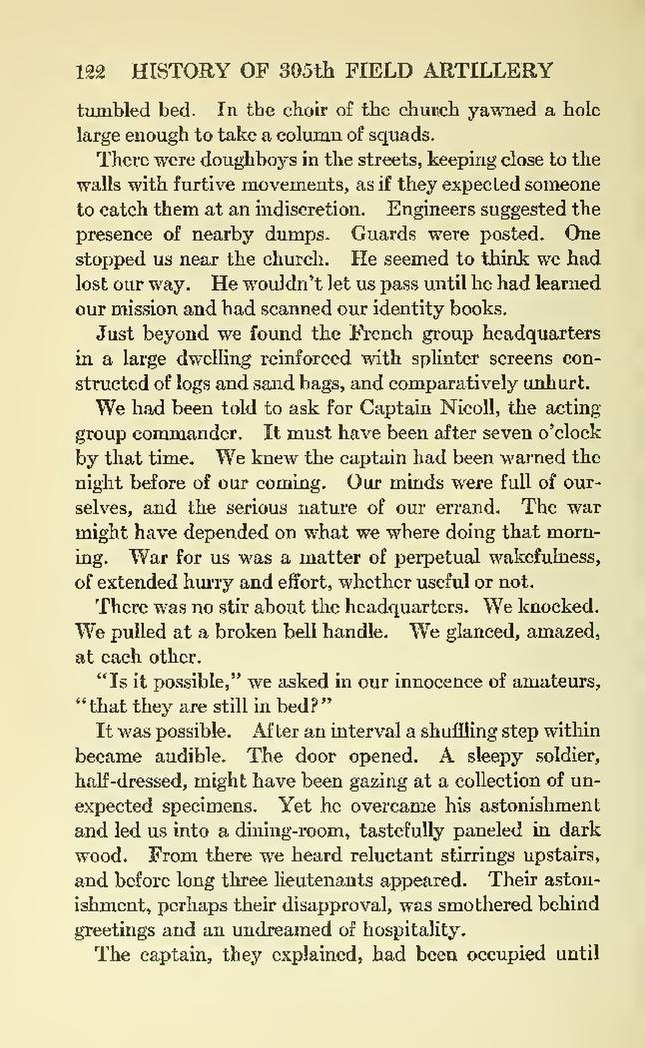tumbled bed. In the choir of the church yawned a hole
large enough to take a column of squads.
There were doughboys in the streets, keeping close to the walls with furtive movements, as if they expected someone to catch them at an indiscretion. Engineers suggested the presence of nearby dumps. Guards were posted. One stopped us near the church. He seemed to think we had lost our way. He wouldn't let us pass until he had learned our mission and had scanned our identity books.
Just beyond we found the French group headquarters in a large dwelling reinforced with splinter screens constructed of logs and sand bags, and comparatively unhurt.
We had been told to ask for Captain Nicoll, the acting group commander. It must have been after seven o'clock by that time. We knew the captain had been warned the night before of our coming. Our minds were full of ourselves, and the serious nature of our errand. The war might have depended on what we where doing that morning. War for us was a matter of perpetual wakefulness, of extended hurry and effort, whether useful or not.
There was no stir about the headquarters. We knocked. We pulled at a broken bell handle. We glanced, amazed, at each other.
"Is it possible," we asked in our innocence of amateurs, "that they are still in bed?"
It was possible. After an interval a shuffling step within became audible. The door opened. A sleepy soldier, half-dressed, might have been gazing at a collection of unexpected specimens. Yet he overcame his astonishment and led us into a dining-room, tastefully paneled in dark wood. From there we heard reluctant stirrings upstairs, and before long three lieutenants appeared. Their astonishment, perhaps their disapproval, was smothered behind greetings and an undreamed of hospitality.
The captain, they explained, had been occupied until
